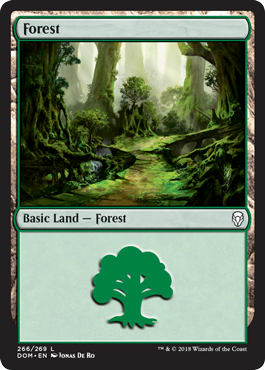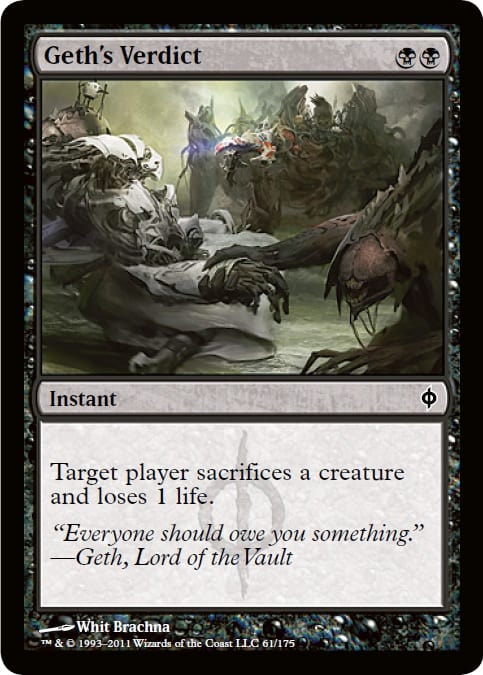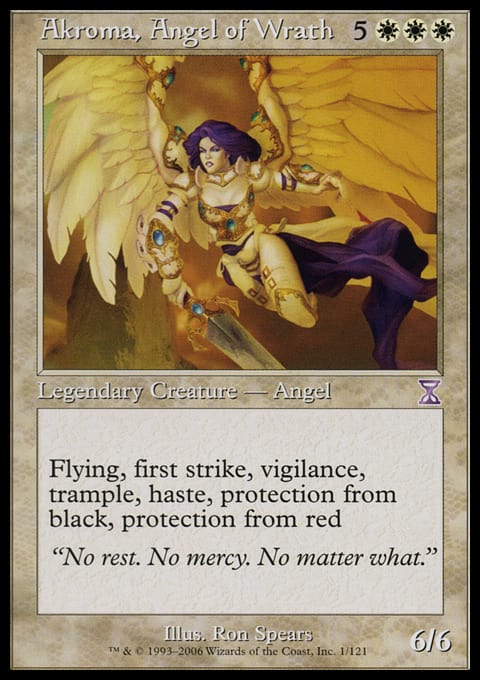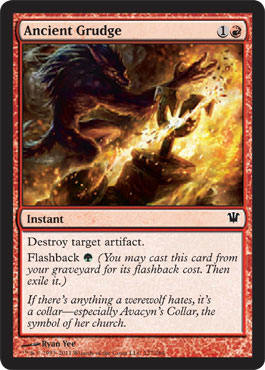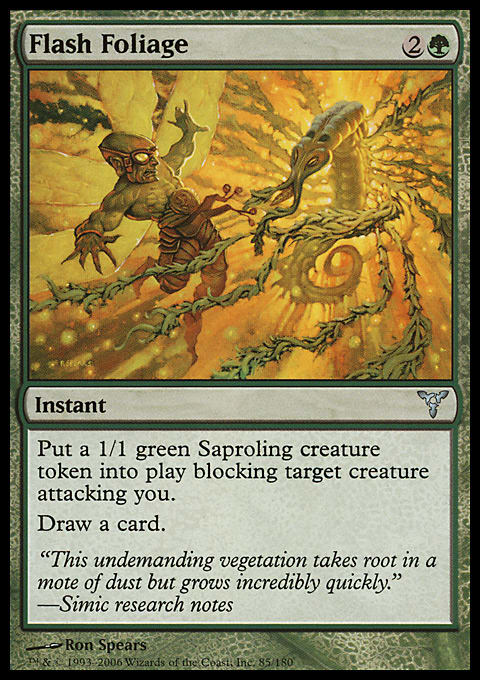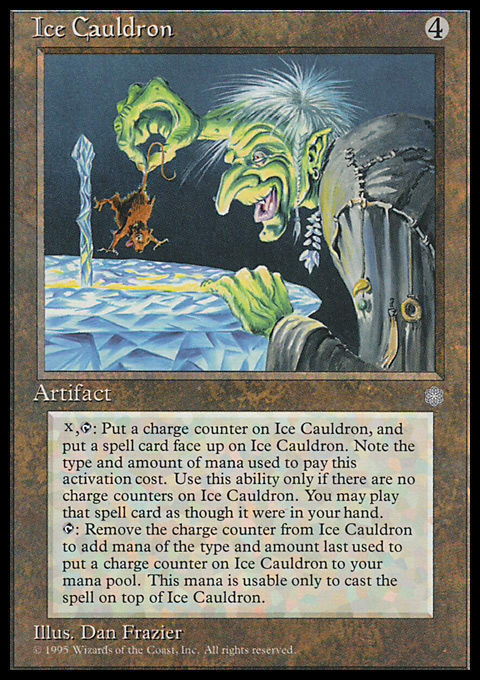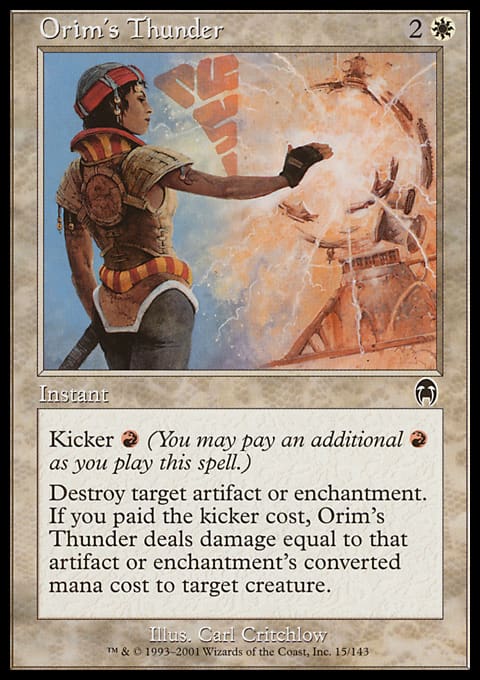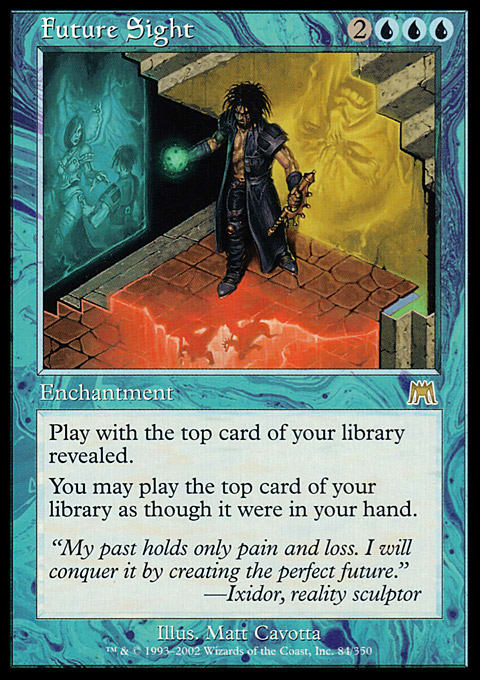I love casual players. I am a casual player. The last five tournaments I’ve played in were in 2009 once, 2008 twice, and 2007 twice. I know—fear me! Anyway, I love playing casual Magic. Last week, we played some games in my office, and I played online. Good stuff, right? Ever since I’ve started playing casual Magic, there have been some things that happen that irritate me. Today, I’m boiling it down to ten items that I regularly see that bug me.
It doesn’t matter whether you are playing a duel or multiplayer Magic, Commander or Emperor, or sixty cards or three hundred cards. There have been trends over the years that I’ve noticed repeatedly. It’s time to address them here in public. This article is not meant to annoy casual players, but to illuminate the issues I’ve seen. I don’t want to come off as attacking, but instead as helping. Perhaps you can learn from something here. I would be an idiot if I didn’t admit that I’ve erred in these ways before. Nobody is a perfect player. So, let’s look at the issues I’ve seen through the years.
1. Mana Is Not a Bad Thing
It seems that a lot of casual players treat mana as though it’s a necessary evil. I can’t tell you how many times I’ve looked through a deck at the card store and discovered a paucity of land. This has been going on since the dawn of Magic and has continued all the way through today. For some reason, people don’t understand the need for lands, and they gripe about mana screw. Everybody’s hosed sometimes by the randomness of the game, but the more lands you play, the less likely you are to find yourself unable to play spells. Playing spells and dropping creatures is the fun part of Magic. No one came to the game to play Forests. I understand that. However, you’d be surprised by the large number of experienced casual players who still have mana issues due to a low count of lands. There are scads of articles about mana out there. This is tremendously easy to fix, so let’s do it!
2. People Don’t Improve Their Decks in Small Ways
One of the issues I’ve noticed is that people tend not to improve their decks over time. Let me give you a recent example. I had someone who rocked a mono-black deck with Diabolic Edict—because it was an instant—over the other options. Okay, I can understand that. Then, he bought some New Phyrexia boosters, and a month later, he played a Diabolic Edict at me. I just stared at him for a minute, and then I picked up his deck. Yup, he still had those Edicts in there.
Every land made black mana, and the only mana accelerant he had was Leaden Myr, so there was no ![]()
![]() -is-hard excuse. I asked why he hadn’t changed over to Geth's Verdicts. He told me that he didn’t think about it. This was the most recent time I’ve encountered this issue. People don’t use the cards they have to enhance their decks in small ways.
-is-hard excuse. I asked why he hadn’t changed over to Geth's Verdicts. He told me that he didn’t think about it. This was the most recent time I’ve encountered this issue. People don’t use the cards they have to enhance their decks in small ways.
Perhaps you should remove out four of those twenty-four Islands for Halimar Depths. Maybe you should pull out those Quirion Elves in the Naya deck for copies of Skyshroud Elf. Might you swap out these Cancels for your unused Dissipates? People forget to improve their decks, and these little things pile up. Now your opponent can flash back that spell you could have exiled with a Dissipate, and now you can’t make both red and white mana with your mana elves, and so forth. Sure, Geth's Verdict’s life loss usually won’t matter, but what about when it does? What about when you kill someone hiding behind a Worship with it (which I did a few months ago)? Always be on the lookout for small ways to improve your decks.
3. People Don’t Improve Their Decks in Big Ways
Forget about small changes for a bit. We have a ton of casual players who don’t invest the good cards in their decks. I first noticed this more than ten years ago when a fellow Magic player in our play group had built about twenty-five decks. All were super-casual and rarely won, and that’s fine. Not everyone wants to win all of the time, and I don’t have any issues with that.
This gentleman purchased a full set of the original dual lands. Then, he proceeded to never use them in any deck for the next four months. They just sat in his binder. The guy who sold him the duals mentioned it to me in passing one day, so I asked the guy if he was saving them or if he just wanted to collect them. Nope—he just wanted to wait for the right deck. Of course, that deck never came.
While this opened my eyes up to this issue, I’ve seen it time and time again. Here’s a blue control deck missing the Force of Will you own but aren’t playing. Over there is a three-colored deck with Llanowar Elves instead of the Birds of Paradise in your deck-stock binder. (Assuming it’s not an Elf deck or something else.)
Another player built a mono-black control deck without Cabal Coffers, despite owning ten. And none of these issues stems from the builder forgetting to put them in. Heck, everyone makes mistakes. Nope—these cards were considered and dismissed for some minor reason. Folks, these cards help you win! Now, I would never claim that every deck should be a cookie cutter of every other one. And if your reason for not playing Coffers was simply, “I’m bored with them,” that’d be fine and dandy with me. But when the reason you aren’t playing these sorts of cards includes, “Enhh,” “Maybe later,” “I’ll use them in another deck someday,” or, ”I don’t have time to switch them,” we have a deck issue. Make your deck better!
4. Mistakes Are Not Learned From
Whatever happens in life, even outside of Magic, we learn from our mistakes. When a child accidentally touches a live oven burner and scorches his or her finger, the child learns. When a person tries to put metal in the microwave and it sparks, that person learns. When I am playing an open-ended RPG and I go to an area with Titans when I’m just level 5, if my butt is handed to me, I learn. This is vital in Magic. It’s how you come to know virtually everything about the game. Tournament players really put this into practice, and it’s how they improve.
The problem is that Casual Land won’t punish you as much for making mistakes. If you forget to draw a card on your turn, and you remember, two turns later, sure, draw that card. If you forget to gain life from Soul Warden, sure, gain that 3 extra life for the creatures I just played. That’s not all—play mistakes aren’t learned from as quickly (or ever) as they are in other games and other places in life.
I remember once being attacked by someone right next to me in a multiplayer game. In came a Shivan Dragon, and my foe pumped it up once with its firebreathing. I had out an Akroma the First, and I blocked it. He was surprised that his Shivan Dragon died without taking out my Akroma—until he realized the first strike that she had (and pro red if he added first strike to his Dragon somehow). The very next game against my mono-white deck, he made the mistake of attacking into it with an 8/4 Crash of Rhinos. Why didn’t he learn his lesson the first time? He’s not the only one.
A ton of casual players aren’t taking lessons from mistakes and losses. They shrug off the experience and move on without learning a lesson. If you think this is you, I have a recommendation. The next time you make a play mistake or you miss something, write it down on a post-it note. Leave it by your deck and look at it a few times. Perhaps seeing your mistake written down will help it sink in. If you are going to play a game, you might as well try to win, right?
5. Carry over Too Much from One Game to the Next
While some casual players may not be taking lessons from one game to the next, many casual players are carrying something else over. This deadly thing they carry over? It’s the evil grudge. How many times have you seen someone take personally an attack, death, or a permanent being destroyed? He goes into the next game and tries to blast the person who aggravated him. He turns the next game into a grudge game, and he might even grab a special deck designed to kill that person as quickly as possible.
It happens all of the time, and it really hurts the game. As someone who does not have a tendency to take things personally, but who has witnessed this since 1994, allow me to tell you how I feel as a spectator when this invariably happens: I’m pissed off at both of you, but more at the person taking it personally if he is clearly taking an in-game action and making more of it than was there.
Folks, I get together with friends and strangers to play Magic and have fun. I do not have fun when two people are yelling at each other. I have even less fun when the next game involves two players playing a side game of chicken instead of focusing on the actual game. To be fair, I have seen someone intentionally antagonize a person by attacking or targeting just him until he’s pissed off. So, I’m not saying that the person who gets in a tiff is always the one in the wrong . . . but I can count on two hands the number of times I’ve seen this—usually, it’s someone being too sensitive about an in-game action.
To enforce justice at my games, if I notice someone exclusively and unfairly targeting just one person, I’ll go after him until he breaks it off. I’ll be the defender of the picked-on. When people become irritated at the game, I understand that. We’ve all lost a game when we wanted to stay in or we almost had it. That happens, but don’t take things personally—it’s a game we play for fun, so let’s keep it like that!
6. Stick Too Long with One Format or Variant
I like new things and new cards. Just like new sets keep the game fresh, new formats and variants keep game tables fresh. I don’t like play groups or times at the game store when everyone is focused on playing just one format without mixing it up. I like mixing up Commander with Pauper or precons or Draft. I like mixing up chaos multiplayer with Secret Alliances or Emperor. You have to do something else. I bore easily with the same old every time. This is true when I head down to the card store on Friday night after FNM and want to play casual and all people have is Commander decks. Sure, let’s play Commander—it’s fun! But can we play something else, too?
7. Misunderstand the Rules
I was at the local card store one day when a married couple entered the store. After talking and such, we sat down to play a couple of games of Magic—multiplayer-style. While shuffling and beginning, they mentioned that they had been playing Magic for more than five years and that they loved the card game. Great! I love meeting new people, and at the time, my place was huge on Friday and Saturday nights, with fifteen people coming over, so as I found new Magic players who seemed cool, I’d invite them over to make it even better!
We sat down to play, and after a bit, one of them attacked me with a few creatures, one of which was a Phantom Warrior. I was playing a green deck. I tapped some mana and played Flash Foliage to block the Illusion Warrior that was attacking me. This began a complex discussion about the rules. They said that since Phantom Warrior is unblockable, the creature made by the spell wouldn’t be able to block it either. I went over the rules for blocking very carefully, and I explained that the inability to be blocked only prevented blockers from being declared. This spell happened after that step and in a different way. So, they tried a compromise. It can work like that this time, but not in the future . . . Wait, what? Rules don’t work like that, but okay. I don’t generally take a few minutes from a game to look up rulings online, so I just agreed, and we moved on (it was a Highlander deck, so it’s not like I had two more in my hand).
Now, the interaction between unblockability and Flash Foliage isn’t exactly obvious—I’ll grant you—so I never bore them any ill will. And I certainly miss complex rules interactions; I’m no judge. Still, I find that many casual players don’t know the basic rules of the game despite playing for a long time. I can’t count how many times I’ve run into casual players who think that if you kill the source of an ability, you counter the ability. If they’ve just started playing the game or come back after a long hiatus, I can understand that and explain it to them. It’s prevalent among long-time players as well.
Many of these basic rules seem to be chucked out a window by a certain section of casual players. Abilities that don’t read “may” can still be ignored, Cancel can be used to stop an activated ability, and so forth. This sort of ties into Item 4 above, but I’m not sure if it is a mistake at that point. One good thing I’ve noticed is that new players who came from the Duels of the Planeswalker game are much better at knowing the rules of the game, so that’s a big plus. If you still have issues with understanding the difference between a counter and countering or nuances of targeting, maybe you should pick up Duels 2012 and play it!
8. Read the Freakin’ Card
These last three are particularly true among multiplayer. The first seven were both multiplayer and duel issues, but these are more in the realm of playing against many opponents.
There are two abbreviations I use at the multiplayer table more than any other: DBAD (Don’t Be A Doo-doo-head) and RTFC. I think RTFC wins by a lot, but I don’t exactly keep score. I’ve talked about this before, but it still vexes me. Folks, read the cards. The fact that someone isn’t sitting next to you doesn’t give you permission to ignore that person’s cards. Try to find out which enchantment is the worst on the board before casting Aura Blast. Don’t just take out the one played by the person next to you. Sure, we can all be surprised by something subtle a card does, and we all misremember facts about cards sometimes. I once could have sworn that Phage killed the owner—not the controller—when it entered the battlefield from a place other than the hand, so I grabbed her with a Hymn of Rebirth. I died. We all laughed for a minute. Stuff like that happens, and we understand. But to not even read the card at all, and to ignore things that are far away (unless they attack you), you have to work on that. Play your hardest! Kick their asses!
9. Hesitate Too Much
This is a truly damaging thing among too many casual players. They hold back attacks because they don’t want to leave themselves open. They keep Disenchants in hand when someone is abusing Future Sight because something worse might come along. (See also the last item for more on Future Sight and friends.) They are tentative in the face of opponents with powerful creatures, spells, and board positions.
Because of this, not only do they wait too long and die, but the people they might have stopped probably win. Fighting the person with the strongest board positions allows you to win. Sticking around and doing nothing until you are buried in an avalanche is a bad move. You have to stop the avalanche before it starts. Commit and attack! Join the fray! Get your hands dirty! If you lose after jumping in, at least you went out swinging. But normally, you’ll help the table stop the juggernaut and survive.
10. A Failure to Properly Understand the Value of Card Advantage
Of all of these issues, this is the one I see the most. It’s rife in the way people play, how they build their decks, and more. I can’t tell you how many times I’ve managed to keep a Bringer of the Blue Dawn in play for three or four turns despite people having removal in their hands. (It happens a ton online, by the way.)
When you are being outdrawn three-to-one, four-to-one, or seven-to-one in multiplayer games, you must try to pick things up. The value of cards that take out multiple cards (Hull Breach, Orim's Thunder, Wing Shards, etc.) is massive. The value of cards that draw you a card when you play them cannot be overstated (commonly called cantrips, these include cards such as Recover, Exclude, Repeal, and Slice in Twain). Don’t ignore pure card-drawing through spells such as Tidings and Harmonize. Creatures that enter the battlefield with an ability to destroy or draw a card are also card advantage—it often takes a card to kill these creatures. If someone Terminates your Rune-Scarred Demon, you won that exchange.
Understanding card advantage takes more than the paragraph today’s article allows, so here’s a link to an article I wrote a couple of years ago on finding small opportunities for card advantage.
This lack of appreciating card advantage is the biggest issue I see in casual Magic. It’s not just in building decks, but in playing. Future Sight is deadly because not only is it providing raw card advantage in terms of numbers, but the player with it is playing those cards immediately. It’s more than just Bringer of the Blue Dawn. It provides improved board position along with an improved card situation.
Cards such as this one need to be immediately blasted on sight. You can’t put up with someone breaking the card advantage equilibrium in such a massive way. Cards such as Mind's Eye, Rhystic Study, Future Sight, and Consecrated Sphinx are must-kills. If I can’t kill the card, I go after the player. I push into Mr. I Have Three Shines Including Honden of Seeing Winds. I attack him aggressively and force him to blow through those cards. Hey, if I can’t take out the card, maybe I can take out the player. I do what I can to survive, you know? Card advantage is crucial, so understand it, include it, and destroy it.
Well, that ends this little topic for today. I thought it would be fun to look at some things I’ve noticed through the years and talk about them. Some of these things happened in my online multiplayer game as recently as last night. Players of all levels of skill and experience do them (including me), so I hope you can realize one or two things you do here and help bring up your game. Keep the cards flipping!
See you next week,
Abe Sargent














